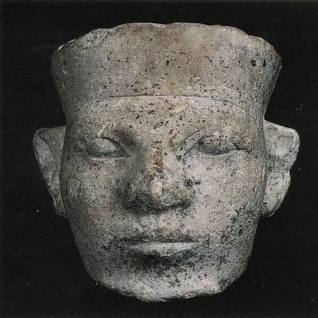This issue features some major investigations into the work of Anthony Appiah. For far too long his work has evaded close scrutiny. One fears that many scholars may have felt that he was protected by either the august nature of his host institution or by his ancestry such that any criticism might be seen as an attack on Africa. Nothing could be further from the truth. Appiah has no heritage in African politics and certainly none in Pan Africanism. He is not a child of our tradition.
Though his father was a pan African supporter , his father left Appiah’s upbringing to his mother and this has much to do with time and place. At that time (1960’s Africa) an African father would be loath to intervene in the early upbringing of a child which was primarily the mother’s domain and with the cultural differences he would have felt he did not wish to deny his child his ‘other’ identity. One has to consider how an Akan father with a Fulani wife would feel towards the upbringing of his child . Politics would be a matter for grown up instruction. Though his mother sought to instill a sense of African belonging in him she failed. Appiah did not grow up with a thousand unspoken lessons in African identity and so often clearly misinterprets words and phrases. Certainly he does not possess the ‘cultural receipt’ of a distinguished African father such that he can speak for his father in his father’s manner.
Personally I have relations who experienced the same confusion and in one case the subsequent children were more or less captured by the father’s African women and their African identify enforced despite their English mother’s wishes. The women of the father’s family realised that their child had no identity, that the English mother failed to provide an English identity or any sense of rootedness and was producing a conflicted child and so intervened to ensure the subsequent children felt a sense of true belonging.
As a child Appiah hated his African ancestry – that factor which, in his child’s mind, separated him from full acceptance by the rest of his English family. While at Cambridge he never once mentioned the Cripps who were an old academic family and whose scion was a rising economics star at the time. They appeared to have ignored him. They were direct relatives. Sad as this may be it is hardly unique – many Africans with dual heritage have highly complex relationships with Africa and the alterior identity. That his career should be dependent on his African identity that he hated is an enormous historical irony – or a malicious prank by Clio. His adoption of ‘Kwame’ is window dressing as he never used this moniker in his formative years.
One great irony has been his claim of descent from the Asantehene. This is cultural confusion at a hilarious level. In British history and within certain English classes, predominantly military, the Ashanti like the Zulu are honoured for defeating the British army. The Ashanti do not have any special place in African history or pan African symbolism, just as Zulus do not mean anything special to Pan Africans. However Prempeh has a special place in African history as a symbol of resistance. When Pan Africans refer to the Asantehene they mean Prempeh 1. Unaware of these subtleties Appiah claimed descent from Asantehene which in Pan African terms is meaningless. This was particular mirthful as he was making these claims as an undergraduate at Cambridge while there was a Ghanaian student at Cambridge with the surname Prempeh! Ghanaian colleagues tell me that subsequently he did in fact become related to an Asantehene. Fact following fable. In African terms the phrase ‘so what’ comes to mind.
Jews have also historically experienced this sort of conflict and the history and behaviour of the conversos in Spain illustrates the sort of internal chasms that Appiah’s behaviour exposes.
However biography is not criticism and two articles that follow are dedicated to a close reading of Appiah’s work. It pays to take Appiah’s writings line by line as in that way his true conduct is fully exposed. Both Appiah and myself were brought up in the tradition of close exegesis and the least one can do is to give him the minimal respect of close exegetical scrutiny rather than the general dismissiveness of most of his other critics.
Articles in series
1 Appiah and the racism in his work – part 1
2. Appiah and the racism in his work – part 2 (Appiah and Lord Monboddo)
During the Xmas holidays of 1973 I sat down to write a piece for Transition then edited by Wole Soyinka. I was an undergraduate and also teaching Africa an Studies at university of Westminster. To my pleasant surprise it still reads with the fresh vigour of a young man. Times have changed but many issues remain the same.

